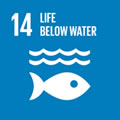Por favor, use este identificador para citar o enlazar a este item:
http://hdl.handle.net/10261/333702COMPARTIR / EXPORTAR:
 SHARE
BASE SHARE
BASE
|
|
| Visualizar otros formatos: MARC | Dublin Core | RDF | ORE | MODS | METS | DIDL | DATACITE | |

| Título: | Filling the gap: the unique isotopic niche of medium-sized and large sharks in the northwestern Mediterranean Sea |
Autor: | Nuez, Ignasi; Gazo, Manel; Borrell, Asunción; Aguilar, Alex; Navarro, Joan CSIC ORCID ; Barría, Claudio CSIC ORCID; Cardona, Luis | Palabras clave: | Sharks Diet Isotopes Niche Mediterranean |
Fecha de publicación: | 20-oct-2022 | Editor: | Sharks International (2022) | Resumen: | The Mediterranean Sea is considered a biodiversity hotspot and hosts a broad diversity of shark species. Unfortunately, many shark populations have suffered a long story of overexploitation and their abundance has strongly declined over the last decades. This is especially noticeable in medium-sized and large sharks. A few studies have addressed the trophic role of sharks in the northwestern Mediterranean Sea, yet little is known about their ecological niche. In this study, the isotopic niches of 6 medium-sized and large shark species (Alopias vulpinus, Galeorhinus galeus, Hexanchus griseus, Isurus oxyrinchus, Prionace glauca and Squalus acanthias) from the northwestern Mediterranean Sea were determined and compared with those of sympatric predatory bony fishes and marine mammals. Overall, δ13C and δ15N values were similar amongst all species except for G. galeus, which was excluded from the analyses as their high δ15N values suggested that the three analysed individuals had recently moved from a distinct area with a different isotopic baseline. The mixing models identified cephalopods as the dominant prey of the other five shark species and revealed that those medium-sized and large shark species filled a unique isotopic niche. The trophic position of sharks was similar to those of predatory bony fishes and small dolphins but lower than that of larger dolphins, pilot whales and beaked whales. The high contribution of cephalopods to the diet of sharks in the northwestern Mediterranean Sea might be indicative of fish scarcity and deserves further research | Descripción: | Sharks International, 20-22 October 2022, Valencia | URI: | http://hdl.handle.net/10261/333702 |
| Aparece en las colecciones: | (ICM) Comunicaciones congresos |
Mostrar el registro completo
CORE Recommender
NOTA: Los ítems de Digital.CSIC están protegidos por copyright, con todos los derechos reservados, a menos que se indique lo contrario.


